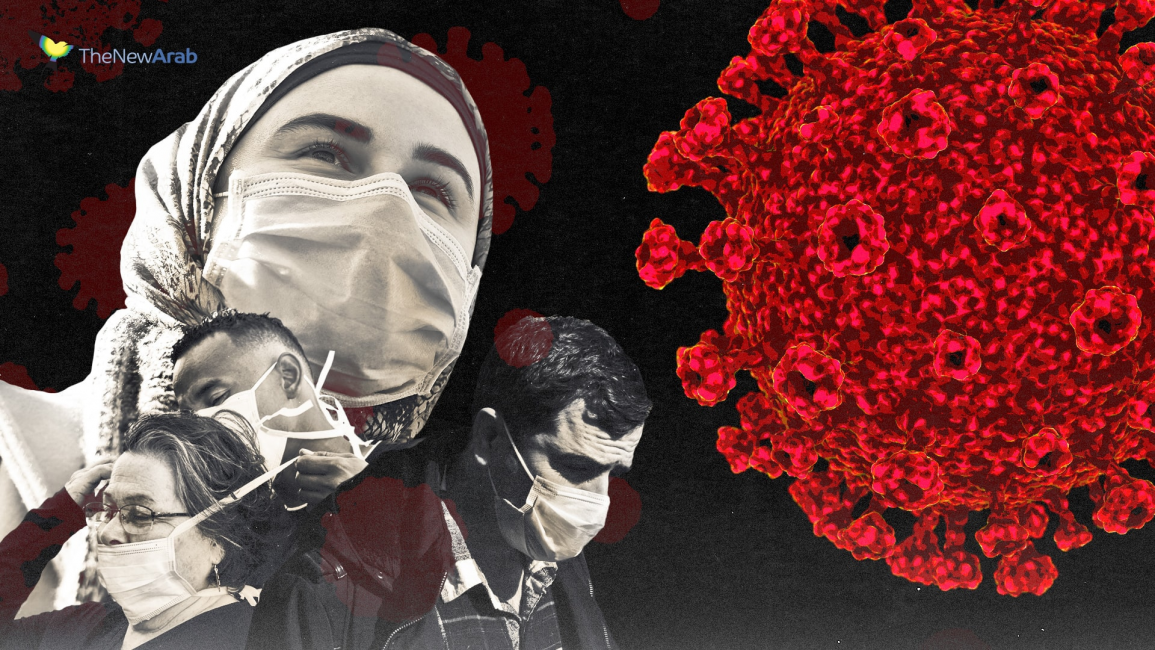The Middle East at war with coronavirus: Top stories from 7 June
1. Iran says virus uptick due to increased testing
Iran's health ministry said on Sunday a surge in new reported coronavirus infections was due to increased testing rather than a worsening outbreak.
After hitting a near two-month low in early May and a lifting of tough movement restrictions, cases of the Covid-19 illness have been rising in Islamic republic which is battling the Middle East's deadliest outbreak of the disease.
"The main reason for rising numbers is that we started identifying (infected people) with no or light symptoms," said Mohammad-Mehdi Gouya, the health ministry's head epidemiologist.
He added that the gradual easing of lockdown measures had also contributed to higher infections "which has more or less happened all over the world," ISNA news agency reported.
Authorities have progressively lifted restrictions imposed to tackle the virus, and activity has almost returned to normal in most of the country's 31 provinces. Read more here.
2. Saudi coronavirus cases exceed 100,000
The number of coronavirus cases in Saudi Arabia exceeded 100,000 on Sunday following a rise in new infections over the past ten days.
The Saudi Ministry of Health reported 3,045 new cases on Sunday, taking the total to 101,914, with 712 deaths. The number of new daily cases exceeded 3,000 for the first time on Saturday.
Twitter Post
|
The country of 30 million people recorded its first Covid-19 infection on March 2. Health authorities said in April the virus could eventually infect between 10,000 and 200,000 people in Saudi Arabia. The kingdom topped 50,000 cases on May 16.
Saudi Arabia’s numbers are the highest in the six-nation Gulf Cooperation Council (GCC), which have recorded 272,625 cases and 1,406 deaths. Read more here.
3. Israel makes high-spec masks against virus resurgence
Israel said on Sunday it had opened a factory to make millions of high-spec masks as it prepares for a possible "second wave" of coronavirus cases.
After imposing tough measures to tackle the Covid-19 illness, Israel has fared relatively well in the initial months of the pandemic.
More than 17,700 infections have been registered among a population of nine million, with nearly 300 deaths.
But as the country has gradually opened up in recent weeks, new outbreaks have occurred and the government has warned Israelis not to become complacent.
"We are preparing for a second wave of the virus," said Defence Minister Benny Gantz, announcing the country's first production line of N95 masks.
N95 masks offer a higher level of protection and are sturdier than the simple medical masks worn by many in Israel. Read more here.
Read also: Amid crippling Israel blockade, Gaza factories roar back to life to make PPE
4. Istanbul residents ignore virus rules on first weekend out
Istanbul residents flocked to the city's shores and parks on the first weekend with no coronavirus lockdown, prompting a reprimand from the country's health minister who warned that the Covid-19 pandemic still poses a threat.
Images on social media and in the news media showed crowds picnicking and partying on Saturday night without heeding social distancing or wearing masks.
Health Minister Fahrettin Koca tweeted "let's not normalise too much" and urged people to wear masks and keep their distance.
Restaurants, cafes, gyms, parks, beaches and museums began reopening Monday and domestic flights resumed. Turkey has reported 4,669 deaths from Covid-19 and 169,218 confirmed cases.
A decision by the Interior Ministry to continue a weekend curfew in 15 provinces, including Istanbul, was overturned Friday by President Recep Tayyip Erdogan with a series of tweets.
He said he was reversing the decision on grounds that it would "lead to different social and economic consequences". Read more here.
5. Afghanistan warns of 'disaster' as virus infections surge
Afghanistan is running out of hospital beds as suspected cases of coronavirus surge, officials said, warning "there is a disaster coming" in the impoverished country.
Afghan health authorities reported 761 new positive cases of Covid-19 over the past 24 hours, taking the total number of confirmed infections to 19,551.
"Our (hospital) beds are almost full, we won't have any more capacity very soon," Health Minister Ahmad Jawad Osmani told reporters on Saturday.
Officials said the number of cases were more than expected, including in the capital Kabul, the epicentre of the disease.
"There is a disaster coming," said Kabul governor Mohammad Yakub Haidary at a joint press conference with the health minister. He said in Kabul alone there could be a million people infected with the deadly virus.
So far there have been 327 confirmed deaths in the country. Read more here.
Follow us on Facebook, Twitter and Instagram to stay connected



